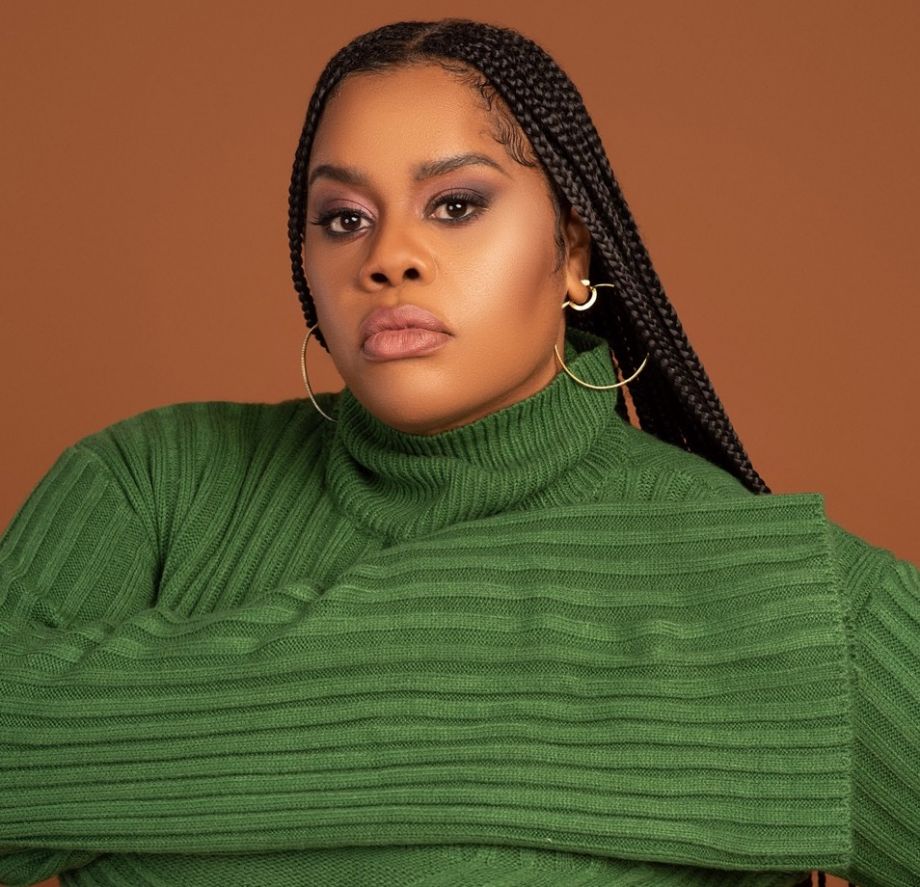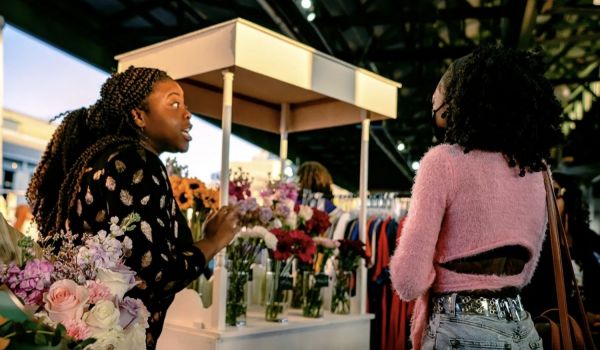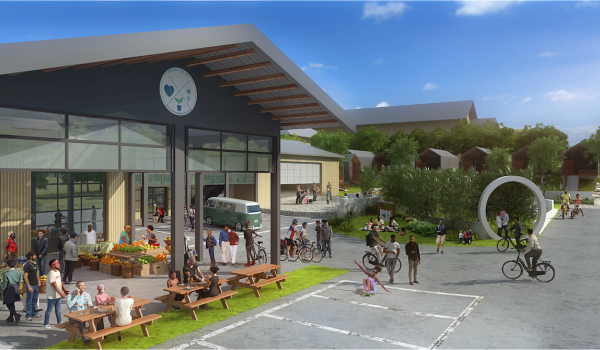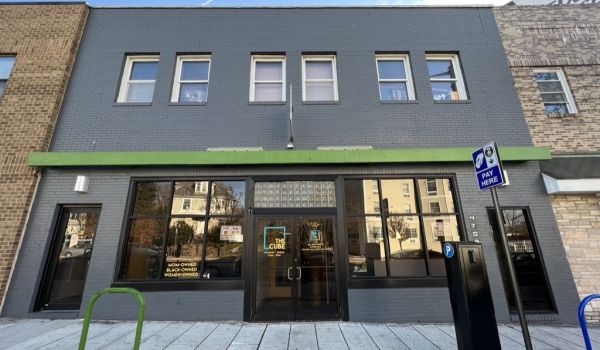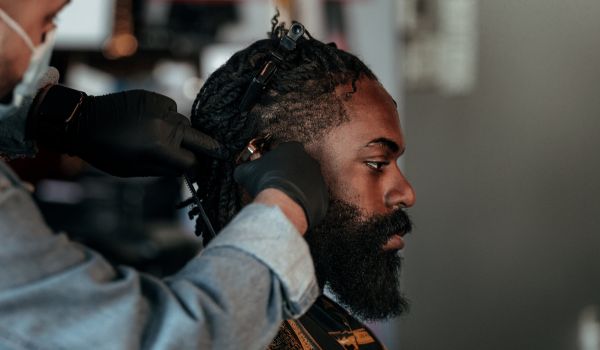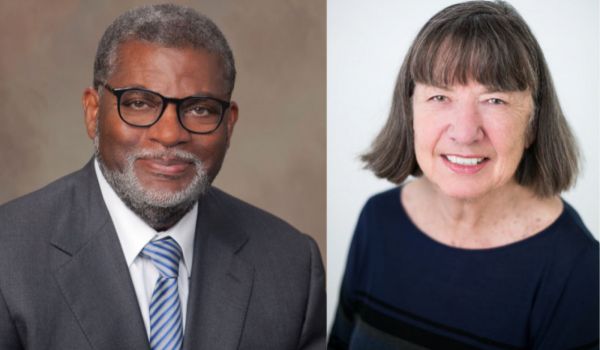EDITOR’S NOTE: This sponsored content is paid for by the Center for Cultural Innovation (CCI), as part of its AmbitioUS initiative. This series explores how alternative economic models can empower artists and culture bearers, with an eye toward financial freedom and long-term sustainability. The following interview has been edited for length and clarity.
“If we don’t tell the truth about how this financial system really works, then we can’t correct it,” says Jessica Norwood, entrepreneur, investor, artist, philanthropist and the author of the forthcoming book “Believe in You Money.”
Norwood is the founder and CEO of Runway, an innovative funder that focuses on closing the gap of “friends and family” capital for entrepreneurs of color. Runway operates in Oakland, Chicago and Boston, and plans to launch in Alabama and the American South. Norwood’s debut book, “Believe in You Money” pulls from her experiences founding and leading Runway to deliver a prescription for a system of investment that is community-centered and offers stability and well-being to Black entrepreneurs.
“Believe in You Money” will be hitting the shelves this October. We spoke with Norwood about rethinking investing, what we really mean when we talk about risk, and why Runway isn’t “venture capital, but make it Black.”
First of all, can you tell us about Runway?
We provide early rounds of money, which people call friends and family money, but I tend to call “believe in you money.” They are usually around or under $40,000.
This is money that when you’re first starting off and people are saying, “Oh, you got a great idea. You should borrow money from your friends and your family,” and you’re looking around like, what friends and family? And so this is that pot of money.
Was there a defining moment when the term “believe in you money” came to you?
At a talk at the Neighborhood Economies conference in Cincinnati, I was sharing about a local entrepreneur named Mr. Boyd. He made beautiful bed frames in the Reconstruction Era, at a time when it was illegal for Black people to be making this kind of money. He used to have a white business partner who fronted to make it seem like he was the person who was doing this.
These are the ups and downs of what it means to be creating business in this country. The government has worked against Black entrepreneurs, where local citizens — maybe just jealous of somebody’s success — have turned to violence. I started talking about what people need at this point is not the kind of money that erases all of that, or imagines that that didn’t happen.
What you really need is “believe in you money.”
It was really Oscar with Next City who caught the phrase. He wrote the first article with me using that phrase — “believe in you money” — about money that believes in who you are, money that believes in your innovation, even when all these biased and discriminatory things happen. [Editor’s note: You can read that article by Oscar Perry Abello here.]
Believing in you is investing in your dream, investing in who you are, and saying as a society and as a people, we don’t want to exclude your voice. We don’t want to exclude the innovation, the know-how, that Black and Brown innovators bring to the table. We want to have that as part of the makeup of our world.
The variety of people who could be “Believe in You” investors ties really well into the community-centered capital piece in your book.
Absolutely. Focusing on the community-building pieces of this is a huge part of the work — looking at where we can make investments but also thinking of ourselves as this beautiful, beloved community that can do this work. Those two pieces really unlock and feel the power-building aspects of investing. I’ve always been a believer that everybody is an investor and everybody could be an investor.
But there are so many ways to express your relationship to people in a place with your resources other than your money. Your time is another way that that happens. I think having this framework of “I can be an investor and choose which businesses come into my community” allows more intimate ways of supporting them, and encourages other people who have maybe more resources than I do to be more serious about how they’re moving their resources.
An economy that loves Black people sees you; it knows what’s happened in your life. It’s already saying, “I want to get you moving in this space. And I want to give you the most generous and loving and thoughtful start.”
You’ve also said that it’s not “venture capital, but make it Black.” Could you tell us more about your vision for non-burdensome investment?
The vision comes out of the recognition that the cost of even getting into business for Black entrepreneurs is really, really high. We talk about that friends and family round of money and recognizing that because of this racial wealth gap, everybody’s not going to have that kind of money. We see Black folks are denied two times more in loans.
The cost of just getting to the same sort of starting place is higher for Black entrepreneurs. A report from Melissa Bradley of 1863 Ventures found that we’re spending $250,000 more just to get to that same spot — spending it on conferences, consultants and the extra interest rates on the cost of the capital that they’re borrowing.
All of that turns into this really huge number. My vision of non-extractive capital looks like not trying to grow a company just for high growth’s sake — that’s a VC model. We’re looking at sustainable growth. We’re looking at businesses that are really going to be in a community that won’t have a trajectory to look for this large exit or try to sell or change this company. We’re looking for businesses that people really want to work with and run for some time.
And that’s not to say that we don’t have businesses and companies in our portfolio that are on that trajectory for higher growth, but when we look at the fact that 90% of Black businesses are solopreneur companies, we can really see that the strategy and the capital that we have isn’t matching up to the fact that you’ve got just one person right here working.
We’re looking for a holistic way to invest where that money lands in a community and creates local jobs for people. We are continuing to keep the ownership and the relationship of that company with the people who have created it.
I think there are ways that we can be in an advisory relationship for sure, and we’re doing that. But it doesn’t have to be something where it’s so aggressive that people have lost their own footing inside of their vision, which we’ve seen a lot of.
What does your vision of an economy that loves Black people look like?
If you’ve been impacted by colonialism, exploitation of your land and community, when you say you have an idea and a business that you want to create in the world — it triggers you getting “believe in you” money. That’s what it means to me.
An economy that loves Black people sees you; it knows what’s happened in your life. It’s already saying, “I want to get you moving in this space. And I want to give you the most generous and loving and thoughtful start.”
That is important. I really liked the use of the word love in this phrasing. It reminds me that love is a verb; that it really is about taking action and not just relying on your laurels. In finance, people often think everything is very static and very set. You can be a humanitarian over here, but then when you come to business and the money, it is supposed to just operate this one way and it’s supposed to be agnostic.
In fact, that’s just not true. It is very biased; it is centered around your Eurocentric ideas of what it means to care for people and what risks mean. So, an economy that loves Black people is going to recognize that love is a verb — it is an organizing principle that requires effort, care and a commitment from the people who are involved. In doing so, you make stronger connections, you build stronger communities, you can be more understanding and you can ultimately fight injustice with a love strategy.
You mentioned redefining risk in both your answers and the book. Can you tell us a little bit more about that?
This was one of the most juicy, interesting conversations in the book for me. I love talking about where we currently are, what we currently think is risky and who we think is risky. In investing, we traditionally have a capital-centered risk; the risk is we can’t lose money. The risk is not what does it mean that we didn’t put that money in this community, or with these people; what is the risk of not investing?
It’s okay to lose that capital. What I think is risky is not taking a chance to solve the problems that we see, to not get in front of vulnerable communities, to not think about democracy, to leave our infrastructure in such a dilapidated place where we can’t make it through heat waves. It would be a risk to me to not invest in and not center that investment with the people who know how to culturally and appropriately move solutions forward would be a huge risk to me.
Often, when we talk about risk, we are really talking about our bias.
If someone reads your book and only has one takeaway, what would you want that to be?
I would ask every person to sit with this and think about where we are in the world and what would make us more loving to one another. What would bring us more humanity? What can we do that could be generationally impactful and immediately impactful? How can we invest in people’s visions and dreams?
It’s also important to tell the truth about how we got here and how this financial system really works; the ways that our financial institutions have been created around exploitation and violence. If we don’t tell the truth about that, then we can’t correct it.

Nia Springer-Norris is a Chicago-based solutions and culture journalist who contributes to Next City and Kirkus Reviews. Her work has also been featured in Ms., Romper and Parents.com.

